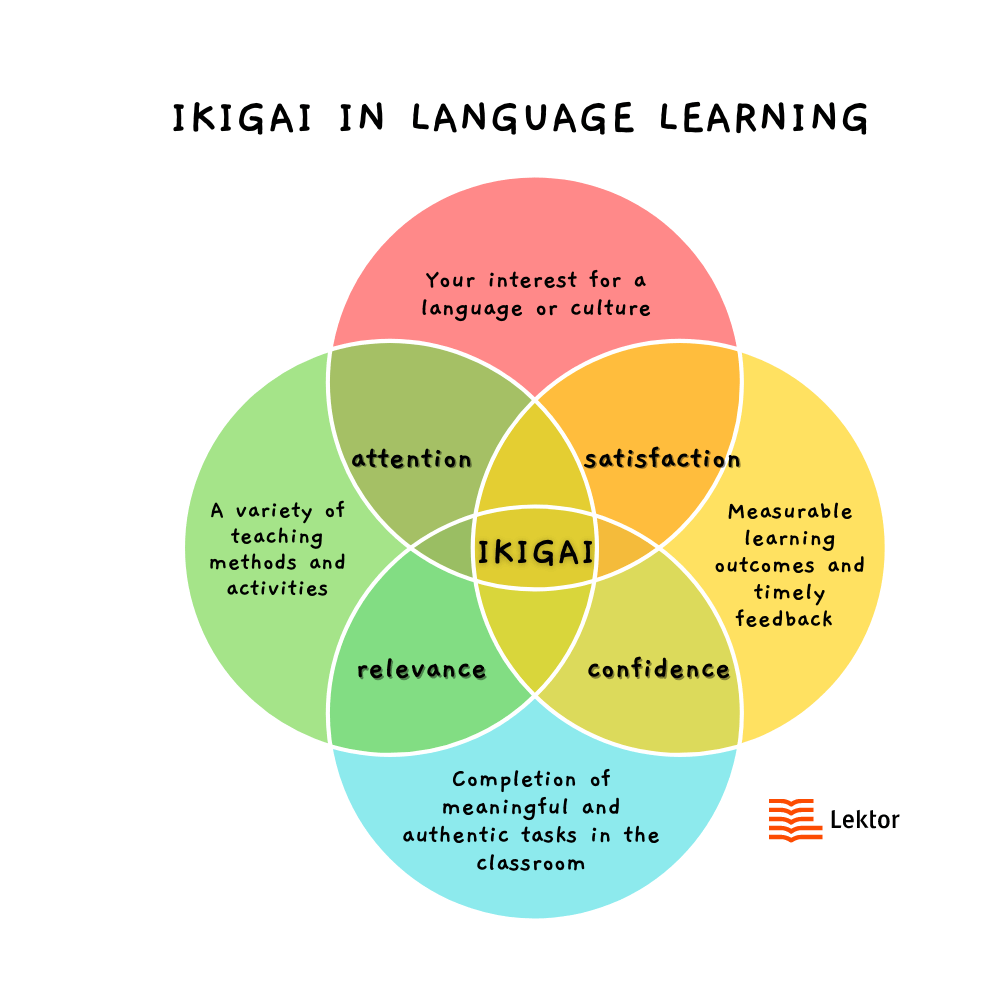IKIGAI is a Japanese concept that refers to finding one’s purpose or reason for being. It is often used in the context of work or career, but it can also be applied to other areas of life, such as language learning. The ARCS model of motivational design, developed by John M. Keller, is a framework for designing effective learning experiences that are Attention-grabbing, Relevant, Challenging, and Satisfying.
In this article, we will bring together these two concepts to define the IKIGAI in language learning. The diagram consists of four overlapping circles that represent different aspects of language learning:
Students’ Interest: This circle represents your interest in a language or culture. It could be a specific language or a broader interest in a particular culture or region. Understanding your interest in the language or culture is important because it can help you stay motivated and engaged in the learning process.
Teaching Methods: This circle represents the different teaching methods and activities that can be used to teach the language. At Lektor, we believe that one size never fits all. We incorporate a variety of methods and learning activities in the language classroom in order to accommodate different learning styles and preferences and to make the learning experience more engaging and effective. A diverse range of activities can also provide opportunities for learners to practice and develop all language skills, such as reading, writing, speaking, and listening.
Meaningful and Authentic Tasks. At Lektor, students work on tasks that require the use of the target language in order to achieve a communicative goal. Trainers act as facilitators, providing support and guidance as students work towards completing the task. This approach encourages our students to use the target language in context and to develop their language skills in a more natural and meaningful way. This can lead to more well-rounded language proficiency and increased confidence in using the target language.
Measurable Learning Outcomes and Timely Feedback: Achieving goals in foreign language learning is a satisfying and rewarding experience. It can provide a sense of accomplishment, boost self-confidence, and motivate learners to continue their language learning journey with a sense of purpose and determination. Therefore, assessment is an important aspect of any foreign language course as it provides ongoing feedback to learners and helps to guide instruction. At Lektor, we use a variety of formative feedback techniques such as reflection, self-assessment, and peer feedback. Summative assessment includes regular quizzes, the use of progress reports, or self-evaluations.
At the intersection of these circles, we have attention, relevance, confidence, and satisfaction, which correspond to the four elements of the ARCS model of motivational design. By focusing on the intersection of these circles, we can create a language learning experience that is engaging, relevant, challenging, and satisfying, and ultimately achieve our IKIGAI in language learning.


